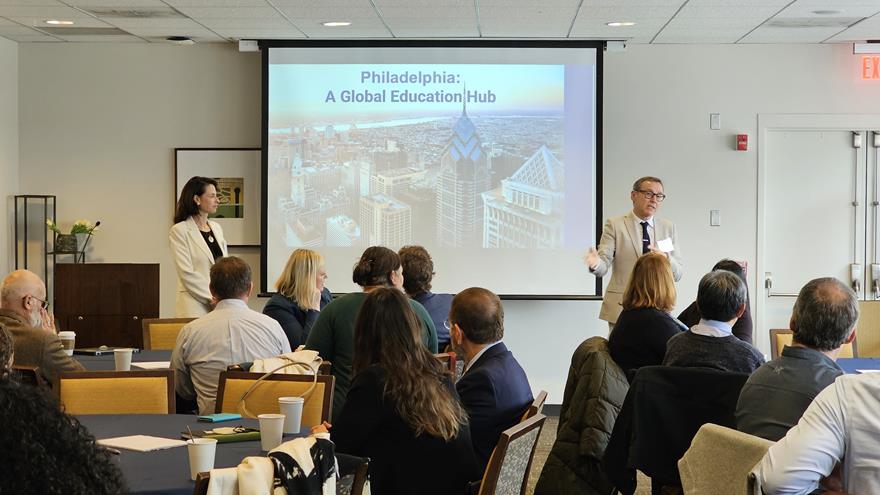Engineers Without Borders Founder Urges Drexel Audience To Help Developing Communities

- Drexel Helps Promote Philadelphia as a Premier Destination for Global Education
- Drexel University, Tamagawa University Students Learn From Each Other From Afar
- Thinking of Applying for a Fulbright? Five Things You Need to Know
- One Alumna’s Life-changing and Career-building Work at Drexel and in Lesotho

It’s the responsibility of an engineer to help make the world a better place by improving the quality of life for developing communities, Bernard Amadei, PhD, told Drexel students, faculty and staff last week. His actions certainly back up that claim.
Amadei, a professor of civil engineering at the University of Colorado at Boulder, is the founder of Engineers Without Borders. He spoke to students, faculty and staff March 12 about how Engineers Without Borders was formed, the future of the organization and the societal impact of its efforts. Amadei’s presentation was hosted by the Institute for Energy and the Environment and Drexel’s student chapter of Engineers Without Borders.
A nonprofit humanitarian organization, Engineers Without Borders supports community-driven development programs around the globe, through partnerships that design and implement sustainable engineering projects. Student chapters, such as the one on the Drexel campus, focus on enabling students to assist with these real-world challenges. The organization aims to solve world problems such as lack of clean water, lack of adequate sanitation, no access to low-cost essential medicines and more.
Amadei stressed to students the importance of “doing good” and an engineer’s responsibility to use his or her skills to help developing communities. He challenged the audience by defining the new generation of global engineers for the 21st century as change-makers, peacemakers, social entrepreneurs and facilitators of sustainable human development. Amadei also discussed the difficulties of engineering in developing countries and the collaboration required among different engineering fields, from mechanical to chemical.
During his presentation, Amadei included a personal anecdote on how Engineers Without Borders was developed. It evolved from the desire to provide engineering students with an opportunity to gain education and experience as globally responsible engineers and professionals based on a problem that he witnessed personally in a poverty-stricken village. His journey sparked the idea for the organization and it grew from there, as Engineers Without Borders currently involves 14,000 members, 325 chapters and more than projects in 45 countries, with more than 200 projects completed.
Amadei was Drexel’s 2008 Engineering Leader of Year for his impact on the engineering world. His main research and teaching interests have initially been in rock mechanics and engineering geology. He obtained a master’s degree in civil engineering in 1979 from the University of Toronto and a PhD in civil engineering in 1982 from the University of California, Berkeley. Amadei’s current interests cover sustainability and international development. At the University of Colorado at Boulder, Amadei directs a program in engineering for developing communities. Amadei is also the founding president of Engineers Without Borders-USA (EWB-USA) and the co-founder of the Engineers Without Borders-International network. The mission of EWB-USA is to partner with disadvantaged communities to improve their quality of life through implementation of sustainable engineering projects.
More information about Drexel’s student chapter of Engineers Without Borders is available at its official website.
In This Article
Drexel News is produced by
University Marketing and Communications.